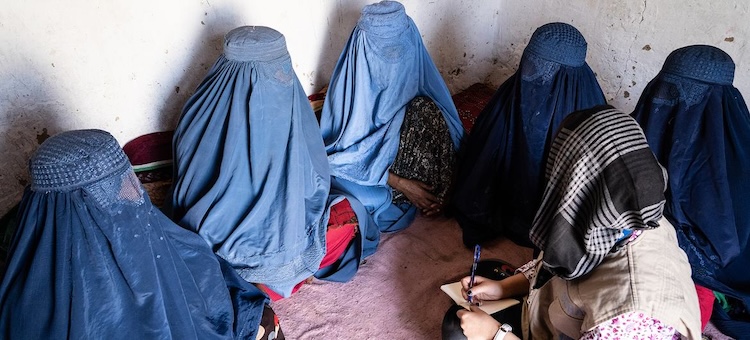By Alon Ben-Meir*
NEW YORK | 15 November 2025 (IDN) — Human rights violations are a global scourge that have engulfed scores of countries on every continent. It appears as though violating human rights is a game in which governments of all national stripes take pleasure and even try to outdo each other in their horrifically gross violations. Tragically, Afghanistan stands out as the one country that egregiously violates women’s rights beyond the pale of anyone’s capacity to grasp.
Conditions for women in Afghanistan are worsening despite global outrage. Since the Taliban assumed power in 2021, they have systematically been stripping women and girls of their fundamental rights, violating every moral principle.
Under the Taliban, women have been effectively erased from public life, and virtually every aspect of their lives has come under severe restrictions. According to the UN, “the oppression that Afghan women and girls are experiencing… is unmatched in terms of scale and generational impact.” The Taliban claims this is dignity under Sharia law when it is nothing but gender persecution, a blatant crime against humanity.
As of June 2024, over one million girls have been banned from secondary school, and over 100,000 from university. This prohibition has grave intergenerational consequences for the country’s future.
Total Exclusion from Public and Social Space
Women are banned from most forms of employment and cannot travel long distances without a male escort. The restrictions are especially devastating for widowed women who must now beg in the streets to feed their families.
A strict dress code requires women to wear a full-body covering such as a burqa, despite Islam not mandating face covering. Those unable to comply risk public beatings or total confinement at home.
Public spaces—including parks, gyms, and TV broadcasts—are out of reach. Women cannot serve as judges, lawyers, or even seek legal recourse as victims of violence. As a result, women’s physical and mental health has deteriorated sharply, maternal mortality has soared, and suicide has become a tragic escape from despair.
Compounding the repression, the Taliban have used religious rhetoric to justify their practices. The regime has even resumed stoning women to death for alleged adultery. International human rights law, including CEDAW, is being brazenly violated.
Resistance, Resilience, and the Limits of Global Condemnation
Despite unbearable restrictions, Afghan women continue to resist. Their protests, clandestine classes, and advocacy networks—often undertaken at enormous personal risk—are a powerful testament to their fortitude. As GW Today reports, women persist in “learning, organizing and advocating for themselves” even under the threat of assassination.
The ICC’s arrest warrants for Taliban leaders are a step toward accountability. But statements and legal tools alone are insufficient. The international community must do far more than condemn; it must act.
Economic sanctions, often the go-to policy tool, would only exacerbate Afghanistan’s economic collapse and place further burden on ordinary Afghans. Effective pressure requires targeted, coordinated strategies—not blanket punishment.
Pathways to Pressure the Taliban and Protect Women
Several concrete measures could build meaningful pressure:
- Mobilizing influential Muslim-majority states:
Pakistan, Qatar, and Saudi Arabia each hold varying degrees of influence and religious authority that could be leveraged to demand change. Their engagement is crucial given the Taliban’s reliance on “Islamic” justifications. - Engaging respected Islamic scholars:
Religious leaders can challenge extremist interpretations and advocate for women’s rights within an Islamic framework. - Coordinated regional pressure:
Neighboring states can collectively condition regional development projects on measurable improvements in women’s rights. - Direct international support inside Afghanistan:
International organizations could fund and protect schools, safe houses, and educational programs for girls. Support for asylum—especially for women human rights defenders—must be drastically expanded. - Diplomatic isolation and targeted visa bans:
Countries can reduce diplomatic engagement and impose travel restrictions on officials directly responsible for gender persecution, while increasing global awareness of abuses.
The EU and UN must work in tandem to implement these measures with consistency and determination. Only sustained, coordinated action can effect real change.
Mere condemnation has accomplished nothing. It is long past time to move beyond rhetoric and take decisive action to confront one of the world’s most horrific campaigns of gender-based oppression.
Dr. Alon Ben-Meir is a retired professor of international relations, most recently at the Center for Global Affairs at NYU. He taught courses on international negotiation and Middle Eastern studies. alon@alonben-meir.com [IDN-InDepthNews]
Image: Displaced women in eastern Afghanistan speak with a UN official. Credit: UNOCHA/Charlotte Cans

